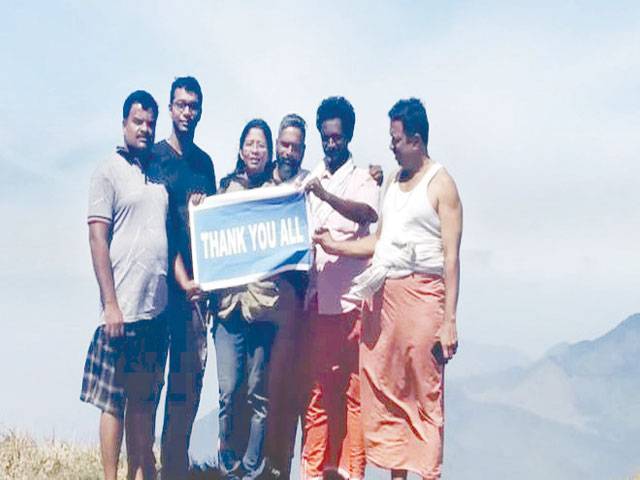NEW DELHI-A woman has climbed a mountain in India, where only men were allowed until now for religious reasons. Dhanya Sanal's ascent to the summit of Agasthyakoodam in southern Kerala state came after a court ruling in November.
Local tribespeople oppose women climbing it because of its statue of a Hindu sage associated with celibacy. Sanal, 38, told the BBC she had not been stopped by locals or protesters. Campaigners say it's a victory in the fight to end gender discrimination. Sanal said she had been "ready to turn back" if tribespeople stopped her, but while she did encounter protesters, she said they had not prevented her from continuing her trek.
In November, the high court in Kerala ruled that women could trek to the 1,868m (6,128ft) peak.
The court said that restrictions on trekking could not be based on gender after a women's group petitioned the court. The group welcomed Sanal's climb.
"We have moved one step ahead in ending gender discrimination in Kerala," Divya Divakaran, one of its members, told the BBC.
Located within a biosphere reserve in India's Western Ghats, Agasthyakoodam is the second highest peak in Kerala. The high court rejected the claim made by tribespeople, who live at the foothills, that the verdict hurt their beliefs. They had said they worshipped the sage, Agastya, and did not want women in the vicinity of his idol as that amounted to disrespecting his celibacy.
The terrain is steep and rocky and the trail is inside a thick forest. Trekkers often take two or three days to scale the peak. "It is extremely tough terrain that demands extra physical fitness," Ms Sanal told the Times of India newspaper.
She was the only woman in a group of 100 trekkers. The group was accompanied by two female forest officials. Officials told the BBC that more than 100 women had registered for treks in the coming weeks. Earlier this month, two women made history in Kerala by entering a prominent Hindu shrine, following months of protests against their entry.
The Sabarimala temple was historically closed to women of "menstruating age" - defined as between 10 and 50. Devotees believe that the deity is an avowed bachelor and the ban was in keeping with his wishes. Hinduism regards menstruating women as unclean and bars them from participating in religious rituals. The women's entry to the shrine prompted massive protests across Kerala. One of the two women is recovering in hospital after her mother-in-law allegedly attacked her for entering the temple.
Despite India's Supreme Court overturning the ban on women, Hindu devotees have continued to protest at the site. On Wednesday, protesters barred two more women from entering the temple, officials said.






